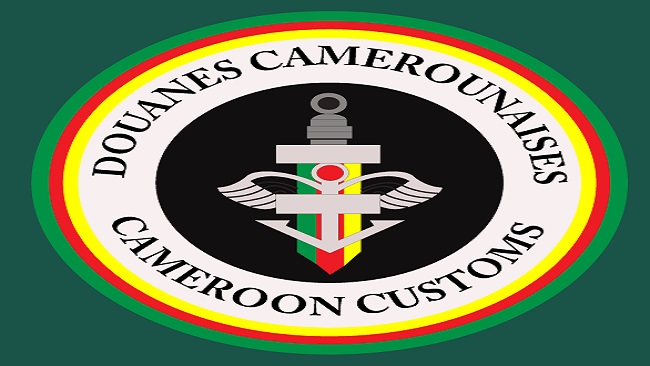Cameroon Customs: Will Fongod Edwin Nuvaga win the fight against smuggling?
Faced with enormous internal and external threats from recalcitrant businessmen, who will go to any length to deprive the state of financial resources and put the lives of Cameroonians at risk, the Cameroon Customs has been re-strategizing to circumvent such malpractices. To up the skills acquired during statutory formation period, customs agents at the central and external services receive regular advanced training on the fight against smuggling offered by experts who combine experience and professionalism. The Cameroon Customs has continuously empowered customs officers with practical skills which put them far beyond mere theoretical concepts.
Being a paramilitary force, we learned the Directorate General of Customs has been collaborating with other security forces in protecting the national territory, especially the economy, against several forms of threats. Ever since a memorandum of understanding was signed between the Ministry of Finance and the Ministry of Defense, the Cameroon Customs with the support of the Navy has carried out many surveillance operations on the territorial waters in the Gulf of Guinea; a volatile coast susceptible to all forms of criminal activities.
Cameroon Customs have put in place a security mechanism whereby customs offers at posts, backed by mobile brigade officers monitor and control the possession and movement of goods across the national territory. According to the Director General of Customs, Fongod Edwin Nuvaga, their concerted efforts have been paying off as successive operations have led to the seizure of goods from illegal trade and the seizure of prohibited items in the likes of mines, weapons, explosives and other substances likely to be used to put the life of citizens and the security of the state in jeopardy.
Fongod noted that in addition to other operations, they have equally put in place an anti-fraud strategy based on partnership and action. “We launched the Operation Stopping Illicit Trade, code-named ‘Operation HALCOMI’ which was carried out from August 16 to December 31, 2016, by the Directorate General of Customs in collaboration with private sector enterprises and the Navy. From East to West, from North to South, the fight against illegal trade is contributing towards the development of the national economy,” he said. Fongod told national daily, Cameroon Tribune that the operation let to the systematic seizure of illegal goods and enterprises which hitherto complained about illegal goods have seen their businesses regain life. Officials of the Directorate General of Customs say last year, Operation HALCOMI let to the recovery of FCFA 357,031,600 as fines. Tones of contraband goods such as pallets of Malta and Dudu, iron rods, wine, whisky, fuel, biscuits, food sweetener, amongst others, were impound at territorial borders.
In order to more effectively address the rising illegal trade and new threats such as money laundering, terrorism, abduction of persons and other transnational crimes, the Cameroon Customs, we learned, is collaborating with Niger, Nigeria, Chad and the Central African Republic to ensure trans-border security. In this conversation with CT, Fongod Edwin Nuvaga revealed that raising FCFA 800 Billion remains his department’s top priority.
Can you tell us how the Custom sector is generally faring?
The Directorate General of Customs is certainly facing many persistent cyclical challenges within a context marked notably by the contraction of trade and the continuous drop in the price of the barrel of oil on the international market. That notwithstanding, I think we are faring well. We are accomplishing our task with professionalism and determination. There is serenity within the ranks of the Customs Administration, with regard to the perfect execution of its specific missions, namely: the fiscal, economic and surveillance missions as well as the mission of assistance to other public administrations.
Mindful of the Head of State’s vision to digitalize the economy, how far has the Directorate General of Customs gone in incorporating ICTs in its operations?
Today, ICTs are omnipresent in the customs environment. From the use of ICTs in customs intelligence, office automation and the website for the publication and dissemination of information, to the use of automated customs clearance systems for customs declaration, from risk management and scanning of containers, validation and processing of information right up to specific procedures, ICTs have transformed the way Cameroon Customs operate. By focusing on digital technology, we are fully accommodating the vision of the President of the Republic, His Excellency Paul Biya, but also the vision of the World Customs Organization, which placed the year 2017 under the slogan: “Data analysis for effective border management.” In the realization of this standard vision, Cameroon Customs is experimenting several tools, the most relevant of which are: ASYCUDA++, electronic payment, container scanning, NEXUS+, GESSPER, electronic manifest, performance measurement, smart phones, the website, the intranet and so on.
In late 2016, we observed that the customs revenue dropped as compared to the year 2015. What caused this drop and what is the revenue generation situation now?
I will observe right away that the reality is quite different. Indeed, the upward trend in revenues was consolidated in 2016, contrary to the downward trend you are making allusion to. For the right information, the Directorate General of Customs raised revenue to the tune of FCFA 685 billion in 2006 as against FCFA 677 billion in 2015; representing an increase of FCFA 8 billion. Obviously, we could have done better than this good result, if we take into account the outstanding recoverable of some FCFA 10 billion from public administration and some companies. In terms of budgetary performance for the current financial year, in the first quarter of 2017, the Directorate General of Customs has accumulated revenues of FCFA 179,773,800,000 compared to FCFA 176,834,800,000 at the same period in 2016; showing an increase of FCFA 2,939,000,000. As you can see, in spite of the unfavorable environment, we continue to replenish the public coffers to the best of our ability and meet the government’s budgetary expenses. The target of FCFA 800 billion of customs revenue, expected in 2017, remains our priority.
Culled from Cameroon Tribune




